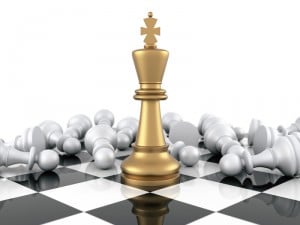[ad_1]
 As a chess novice, I thought that it was a game that centered largely around memorization. How do the funny horses move again? When it is okay to do that castle thing? After I had a couple of games under my belt, I realized that it was a game of strategy and foresight. My limit is knowing that if my Knight takes their Rook, their Bishop takes my Knight — 2-3 moves ahead is my limit. But Chessmasters?! Oh, they are a completely different breed. In a recent match between Hans Niemann and Magnus Carlsen, Carlsen forfeited after just one move.
As a chess novice, I thought that it was a game that centered largely around memorization. How do the funny horses move again? When it is okay to do that castle thing? After I had a couple of games under my belt, I realized that it was a game of strategy and foresight. My limit is knowing that if my Knight takes their Rook, their Bishop takes my Knight — 2-3 moves ahead is my limit. But Chessmasters?! Oh, they are a completely different breed. In a recent match between Hans Niemann and Magnus Carlsen, Carlsen forfeited after just one move.
In a detailed letter, Carlsen accused Niemann of cheating:
“I believe that cheating in chess is a big deal and an existential threat to the game,” he continued. “I also believe that chess organizers and all those who care about the sanctity of the game we love should seriously consider increasing security measures and methods of cheat detection for over the board chess.”
Maybe Carlsen, like Laplace’s Demon, knew each and every set of affairs to come after Niemann moved his pawn. But I, limited in my foresight, saw no evidence of the apparent cheating that led to Carlsen’s rapid resignation. And I definitely didn’t see it leading to a $100M lawsuit.
While I do not know if Niemann cheated in this particular round, I do know that Carlsen isn’t the only one that is suspicious of his prior ones. From Forbes:
Hans Niemann, the 19-year-old American grandmaster who last month was accused of cheating by World Chess Champion Magnus Carlsen after a shocking upset, was found to have “likely cheated” more than 100 times, according to an investigation by Chess.com, the world’s largest online chess platform.
I’d be suspicious of playing a man who has allegedly cheated in more chess games than I’ve played, too. Niemann didn’t take too kindly to the accusations, lumping Chess.com and Carlsen, among others, into a suit.
The suit claims that the defendants, including Chess.com, inflicted “devastating damages” against Niemann by “egregiously defaming him” and “unlawfully colluding” to bar him from the professional chess world.
The fun part is the data-driven name calling in the brief which, to my understanding, is devastating in the chess world.
Niemann’s defamation and collusion suit calls him an “American chess prodigy,” but Chess.com throws doubt on that claim. The report states that, of the 13 grandmasters under the age of 25, Niemann is the only one who became a grandmaster after the age of 16. In general they call him “statistically extraordinary.”
Oof. They definitely checked that mate. We’ll keep you up to date with the legal goings-on of this chess match by other means.
 Chris Williams became a social media manager and assistant editor for Above the Law in June 2021. Prior to joining the staff, he moonlighted as a minor Memelord™ in the Facebook group Law School Memes for Edgy T14s. He endured Missouri long enough to graduate from Washington University in St. Louis School of Law. He is a former boatbuilder who cannot swim, a published author on critical race theory, philosophy, and humor, and has a love for cycling that occasionally annoys his peers. You can reach him by email at cwilliams@abovethelaw.com and by tweet at @WritesForRent.
Chris Williams became a social media manager and assistant editor for Above the Law in June 2021. Prior to joining the staff, he moonlighted as a minor Memelord™ in the Facebook group Law School Memes for Edgy T14s. He endured Missouri long enough to graduate from Washington University in St. Louis School of Law. He is a former boatbuilder who cannot swim, a published author on critical race theory, philosophy, and humor, and has a love for cycling that occasionally annoys his peers. You can reach him by email at cwilliams@abovethelaw.com and by tweet at @WritesForRent.
[ad_2]




